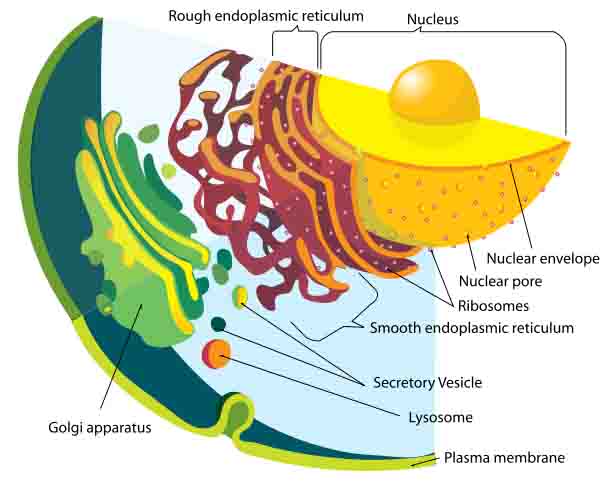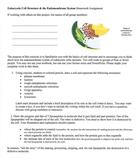 | ||||
Endomembrane System of Eukaryotic Cells - P2
Page last updated: 4/2016
Golgi Apparatus
The Golgi apparatus modifies the proteins and lipids made by the endoplasmic reticulum and prepares these materials for export from the cell. This organelle also encloses digestive enzymes into membranes to form vesicles called lysosomes.
Vesicles
Vesicles are relatively small, enclosed compartments that have budded off from other parts of the endomembrane system.
The contents of a vesicle are separated from the cytosol (internal fluid of the cell) by at least one lipid bilayer. Vesicles are like the trucks of the endomembrane system.
You have free access to a large collection of materials used in a college-level introductory Cell Biology Course. The Virtual Cell Biology Classroom provides a wide range of free educational resources including Power Point Lectures, Study Guides, Review Questions and Practice Test Questions.
SPO VIRTUAL CLASSROOMS
 | ||||
PAGE 2 < Back to Page 1
End of Article < Back to Page 1
They function to store, transport, or digest cellular products and waste.
Many vesicles are made by the Golgi apparatus, the endoplasmic reticulum, or parts of the plasma membrane. Vesicles made from the plasma membrane form when the cell takes in (endocytosis) or discharges (exocytosis) materials.
Lysosomes
If vesicles are the trucks of the endomembrane system, lysosomes are specifically the garbage (or recycling) trucks. These single membrane bound structures contain digestive enzymes that break down cellular waste, debris and nutrients for use by the cell. They are the sites of cellular digestion.
Sources and Helpful Cell Biology Links
- Bauman, R. (2014) Microbiology with Diseases by Taxonomy 4th ed., Pearson Benjamin Cummings.
- Park Talaro, K. (2008) Foundations in Microbiology, McGraw-Hill.
- Endocytosis & Exocytosis Animation from McGraw Hill.
- Eukaryotic Cell Interactive Animation from Cells Alive.
- Endoplasmic Reticulum & Golgi Apparatus interactive lesson.
- Eukaryotic Cell Lecture Main Page from the Virtual Cell Biology Classroom.



